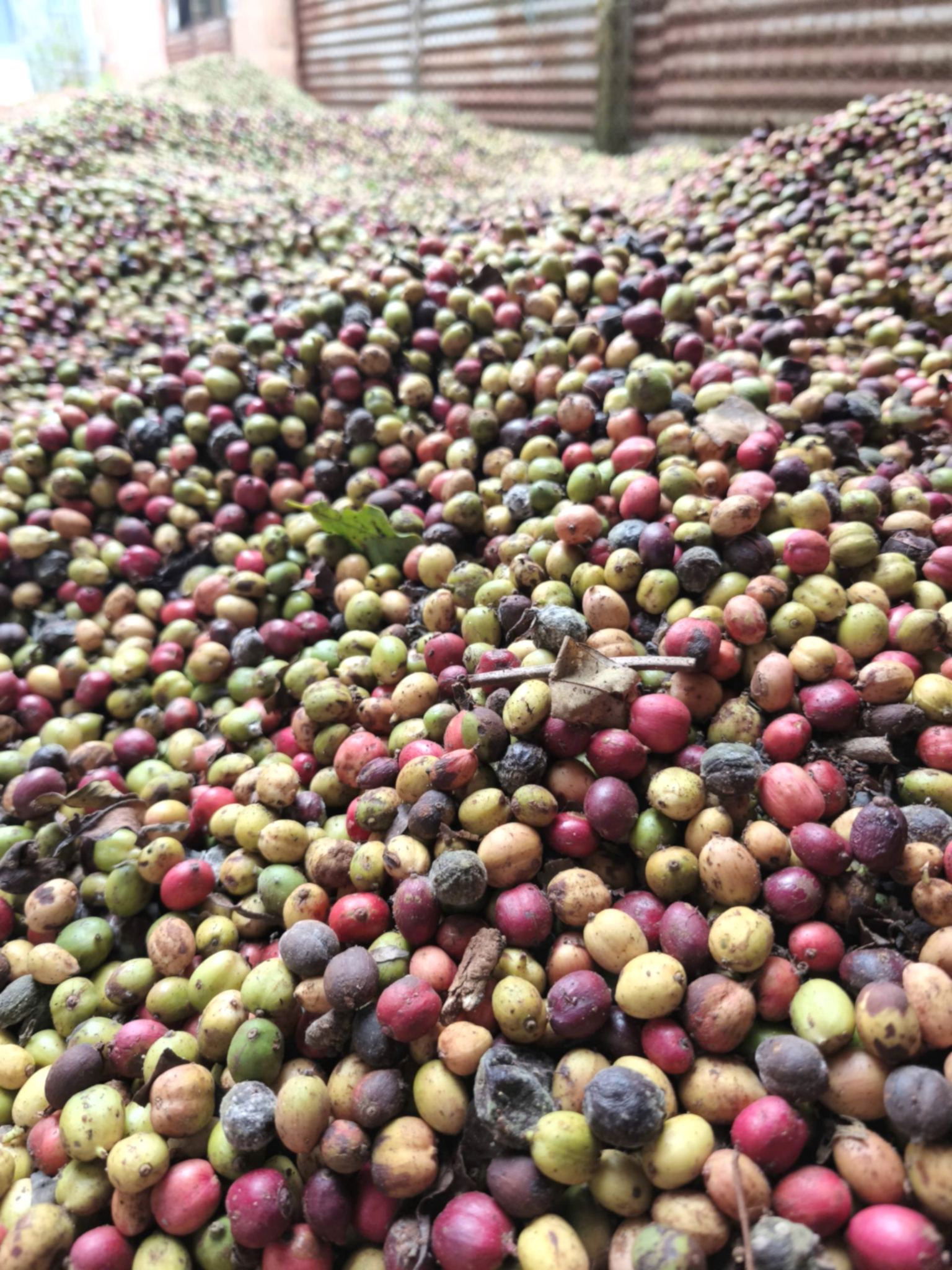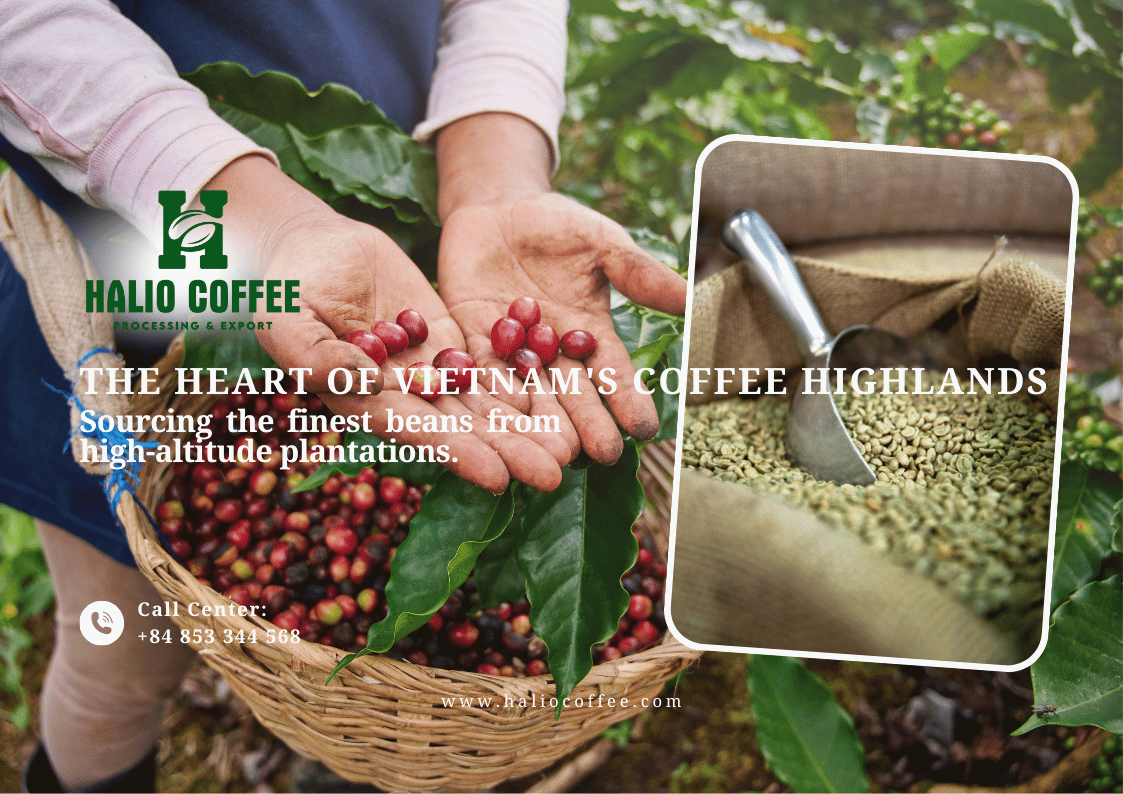EUDR Compliant Coffee Supplier Vietnam: Preparing for the Future of Sustainable Trade
Ensuring Traceable, Legal, and Deforestation-Free Coffee from Vietnam to the World
As global markets shift toward more sustainable and transparent supply chains, the European Union Deforestation Regulation (EUDR) is set to redefine how coffee is sourced, verified, and traded. For Vietnam—the world’s top Robusta exporter and a rising player in specialty coffee—this presents both a challenge and a powerful opportunity.
For coffee producers, roasters, and distributors seeking reliable, forward-looking partners, finding an EUDR compliant coffee supplier Vietnam is now critical to long-term success in the EU and beyond.
Understanding the EUDR and Its Impact on Vietnamese Coffee
The EUDR, expected to be fully enforced by the end of 2025, mandates that all coffee entering the 27-member EU bloc must:
- Be traceable to its source, with exact geolocation data for each producing plot
- Be proven legal, complying with local land-use and environmental laws
- Be free from deforestation or forest degradation after December 31, 2020
Given Vietnam’s highly fragmented coffee supply—where 90% of production comes from smallholder farms—compliance requires deep structural reform, but also offers a chance to strengthen the nation’s reputation for transparent and sustainable agriculture.
Who Are the Leading EUDR Compliant Coffee Suppliers in Vietnam?
1. Simexco Daklak – Vietnam’s Pioneer in EUDR Readiness
As a major coffee exporter and long-time advocate for sustainability, Simexco Daklak is the first Vietnamese company to receive a 4C-EUDR supplementary certification—marking it as a global trailblazer.
Simexco’s EUDR Strategy:
- Mapping thousands of farms with GPS coordinates and polygon boundaries
- Digital traceability systems integrated with existing 4C data
- Strategic collaboration with specialty roasters like MISS EDE to create fully compliant coffee supply chains ready for 2025 EU exports
Simexco’s early action and transparent data systems make it a standout EUDR compliant coffee supplier Vietnam for global buyers.
2. Intimex Group – Leading by Scale and Commitment
As Vietnam’s largest coffee exporter, Intimex Group is leveraging its size and influence to accelerate EUDR compliance across its network.
Chairman Do Ha Nam, also Vice President of VICOFA, has emphasized Intimex’s readiness and its role in leading the industry into a new, traceable era. Their commitment ensures buyers access large volumes of compliant green coffee—especially critical for high-volume roasters and manufacturers.
3. Global Corporations Aligning with EUDR in Vietnam
Major multinationals are also shaping Vietnam’s EUDR readiness:
- Louis Dreyfus Company (LDC): Actively investing in traceability roles and working with IDH on sustainable landscape initiatives in the Central Highlands
- JDE Peet’s: Collaborating with Vietnam’s Ministry of Agriculture and NGOs to build a national coffee and forest data system, ensuring large-scale EUDR compliance at the institutional level
Technology and Partnerships: The Backbone of EUDR Compliance
1. National Coffee & Forest Database
Led by IDH and the Ministry of Agriculture, this integrated system enables:
- Farm-level geolocation mapping
- Real-time satellite monitoring of forest changes
- Digital traceability from plot to export warehouse
2. Provincial Pilots
Regions like Daklak and Lam Dong are pioneering local data collection and mapping:
- Krông Năng, Cư M’gar (Daklak) and Lâm Hà (Lam Dong) are digitizing farm boundaries, land titles, and forest classifications to support EUDR reporting
See more:
- Specialty Coffee Beans Vietnam Supplier: Elevating Vietnamese Coffee to Global Standards
- Buy Green Coffee Beans from Dak Lak: A Guide for Roasters and Distributors
- Halio Coffee – Your Trusted Fresh Coffee Distributor of Robusta & Arabica Beans
Challenges in Reaching Full EUDR Compliance
While the groundwork is being laid, Vietnamese coffee still faces structural hurdles:
Land Tenure Issues
Many smallholders lack formal land-use documents, with only handwritten agreements or disputed claims. This complicates proof of legality—a core EUDR requirement.
High Compliance Costs
Mapping, training, certification, and system integration require investment. Suppliers and farmers will need support to avoid financial strain.
Supply Chain Complexity
With multiple middlemen and informal networks, tracing small lots to source requires robust data systems and simplified supply chains.
The EUDR Opportunity: From Commodity to Certified Excellence
Rather than viewing EUDR as a barrier, forward-thinking producers are treating it as a springboard for long-term transformation. Compliance with EUDR will not only:
- Open doors to EU markets
- Improve access to premium buyers
- Increase value through verified traceability
…but also enhance Vietnam’s positioning as a trusted origin for specialty and sustainable coffee.
That’s where suppliers like Halio Coffee come in—blending traceability, quality, and transparency.
Why Choose an EUDR Compliant Coffee Supplier Vietnam Like Halio Coffee?
✅ Full Traceability Systems
All lots are geotagged, documented, and linked to land-use records
✅ Compliance with Local and EU Law
Working in close partnership with certified cooperatives, government agencies, and tech partners
✅ Specialty Coffee + Compliance
As a certified Specialty coffee beans Vietnam supplier, Halio combines cupping excellence with regulatory readiness
✅ Customizable Supply Options
Whether you’re sourcing specialty Arabica micro-lots or high-volume Robusta for blends, we provide tailored, compliant solutions
Partner With Halio Coffee Today
📍 Address: 193/26 Nguyen Van Cu Street, Buon Ma Thuot City, Daklak
📧 Email: Haliocoffee.com@gmail.com
🌐 EUDR-Ready. Quality-Driven. Export-Experienced.
- A Consultant’s Master Guide to Communication with Vietnamese Suppliers
- Beyond Volume: A Strategic Analysis of the Top 5 Vietnamese Coffee Export Trends for 2026 and Beyond
- The Robusta Epicenter: A Buyer’s Guide to Vetting Buon Ma Thuot Robusta Coffee Suppliers
- The Robusta Report: A Deep Dive into the Vietnam Robusta Green Coffee Price Europe
- The Metrics of Value: Decoding the Vietnam Coffee Grading System (e.g., TCVN 4193:2014) for Global Buyers







